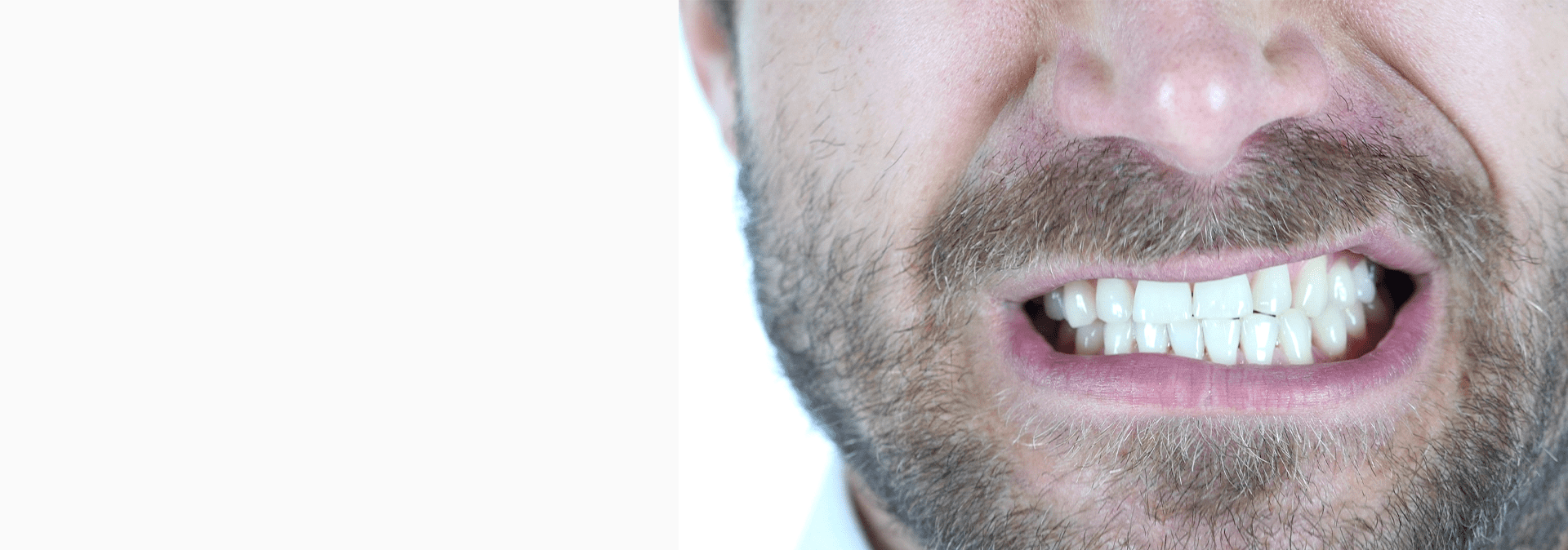
Toothwear and grinding
Have you ever been told that you grind your teeth during the night? Tooth grinding, also known as bruxism, is a relatively common problem, which can have negative implications for your dental health. It is estimated that around 10% of British adults grind their teeth.
Get in touchWhat exactly is bruxism?
Bruxism is the medical name for tooth grinding or clenching. This is usually a subconscious action, which takes place while you sleep. When you grind the teeth, the jaw clenches and the upper and lower arches of teeth rub against each other.
GET IN TOUCHWhat are the signs and symptoms of bruxism?
Some people don’t know that they grind their teeth until somebody tells them or they visit a dentist who points out signs of wear and tear and additional symptoms such as headaches and pain in the jaw. If you regularly wake with aches and pains in your jaw, you experience headaches with no clear cause or you’ve noticed that your teeth look worn, these signs may be down to grinding your teeth.
If you grind your teeth infrequently, you may not notice any obvious symptoms, but persistent bruxism can contribute to:
- Tooth damage
- Receding gums
- Stiffness in the neck and shoulders
- Jaw pain
- Restricted movement in the jaw
- Earache
- Swollen gums
